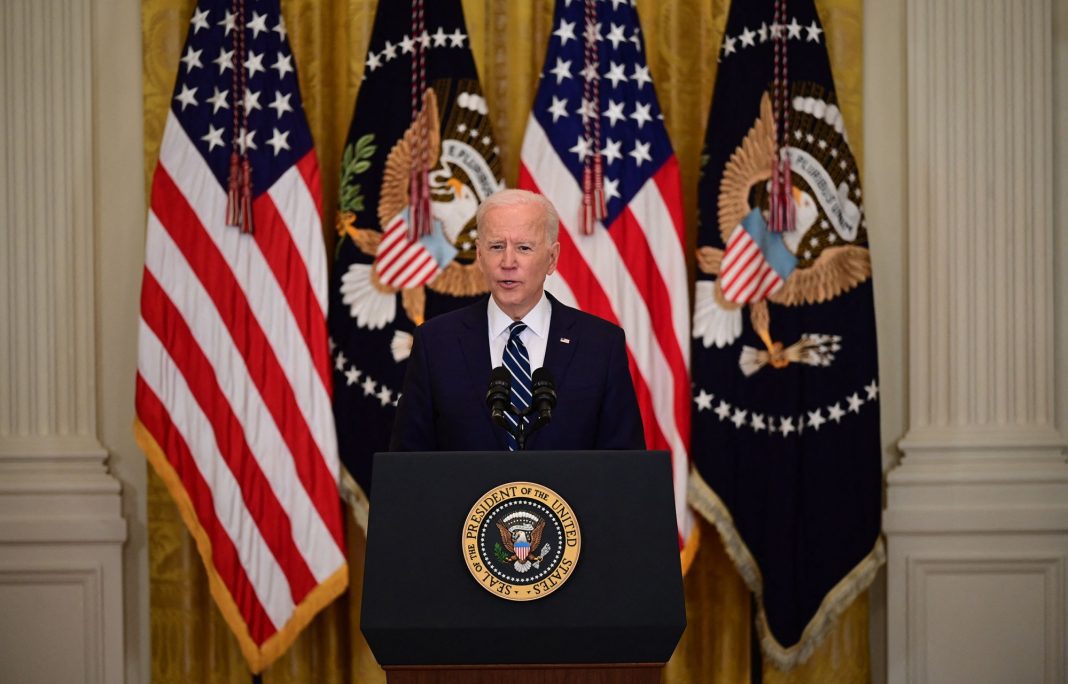The Biden administration is continuing its efforts to facilitate the transition to all-electric vehicles, with Biden proposing a goal for 40% to 50% of vehicles to be either all-electric, hydrogen-powered, or plug-in hybrid by 2030 and also recommending other regulations. The push to have more EVs throughout the U.S. is much less strict than some countries around the world but still has a huge impact on the priorities of automakers.
Aspirational Goals
The executive order comes as the transportation sector continues to be the primary source of greenhouse gas emissions, but it does not implement any sort of law. The order is more of a push for future legislation in favor of EVs and does not legally mandate these goals be met, but various automakers have expressed support of them.
In a White House memo on Thursday, the Biden administration provided statements from various automakers and groups, including one from Ford, General Motors, and Stellantis. The three auto giants announced their “shared aspiration” to reach Biden’s goal and added that their “recent product, technology, and investment announcements highlight [their] collective commitment to be leaders in the U.S. transition to electric vehicles.” They concluded their statement by saying they “look forward” to working with the Biden administration to “enact policies that will enable these ambitious objectives.”
BMW, Honda, Volkswagen, Volvo, and Ford also gave their support for the new standards, releasing a joint statement indicating they “were proud to stand with California to establish progressive new greenhouse gas regulations” and that they “remain committed to leading the industry in fighting against climate change.” The automakers further stated that in order to reach the goals of the Paris Climate Agreement, the U.S. would need “a strong nationwide greenhouse gas emissions standard, continued investments in charging infrastructure, and broad consumer incentives for all-electric vehicle purchases.”
While the United Auto Workers has been cautiously supportive of more eco-friendly manufacturing, it has consistently been leerier of newer, stricter standards. The UAW’s president provided a statement indicating the union is primarily “focused on preserving the wages and benefits that have been the heart and soul of the American middle class.”
On the other side, environmental activist groups are also not completely satisfied with the proposed rules either, stating they aren’t aggressive enough.
Emissions Standards
One item on Biden’s to-do list when entering office was to eliminate the standards for emissions and fuel economy that former president Trump had implemented. Trump’s plan required automakers to increase fuel efficiency by 1.5% per year, in stark contrast to his predecessor’s 5% plan. Biden’s plan is expected to be more in the middle, aligning more with the so-called California standards, which is 3.7%.
Executive Order for Federal Agencies
Also on the agenda, Thursday was Biden’s signing of another executive order requiring the National Highway Traffic Safety Administration and the Environmental Protection Agency to also implement measures to ensure his 2030 goal is met. The EPA is expected to propose its own rules for reasonably balancing fuel economy gains with emission reductions, and the NHTSA will have to implement ways to comply with the new fuel efficiency standards. The NHTSA is also expected to follow the target of 40 miles per gallon for vehicles that are still fuel-powered.
Factoring in Consumer Sentiment
Of course, it is important to remember that consumers will also play a critical role in the adoption of EVs and other eco-friendly transportation means. According to Edmunds, EVs currently still only make up 2 percent of vehicles throughout the U.S., and a 2020 Consumer Reports poll revealed that many U.S. drivers aren’t eager to invest in an EV. According to the Associated Press, results of the poll showed that only 4 percent of respondents planned to buy an EV as their next vehicle, 40% said they were mildly interested but still would not buy an EV as their next vehicle, and almost 30% expressed complete disinterest in owning an EV.
Did you enjoy this article from Kimberly Hurley? Please share your thoughts, comments, or questions regarding this topic by submitting a letter to the editor here, or connect with us at newsroom@cbtnews.com.
Be sure to follow us on Facebook and Twitter to stay up to date or catch-up on all of our podcasts on demand.
While you’re here, don’t forget to subscribe to our email newsletter for all the latest auto industry news from CBT News.










